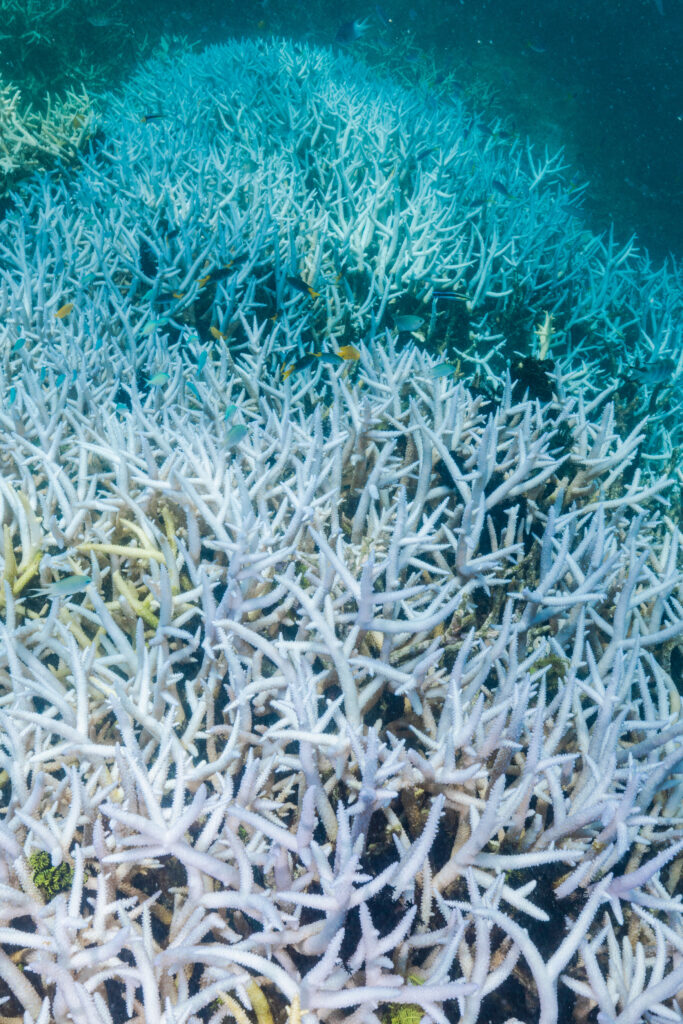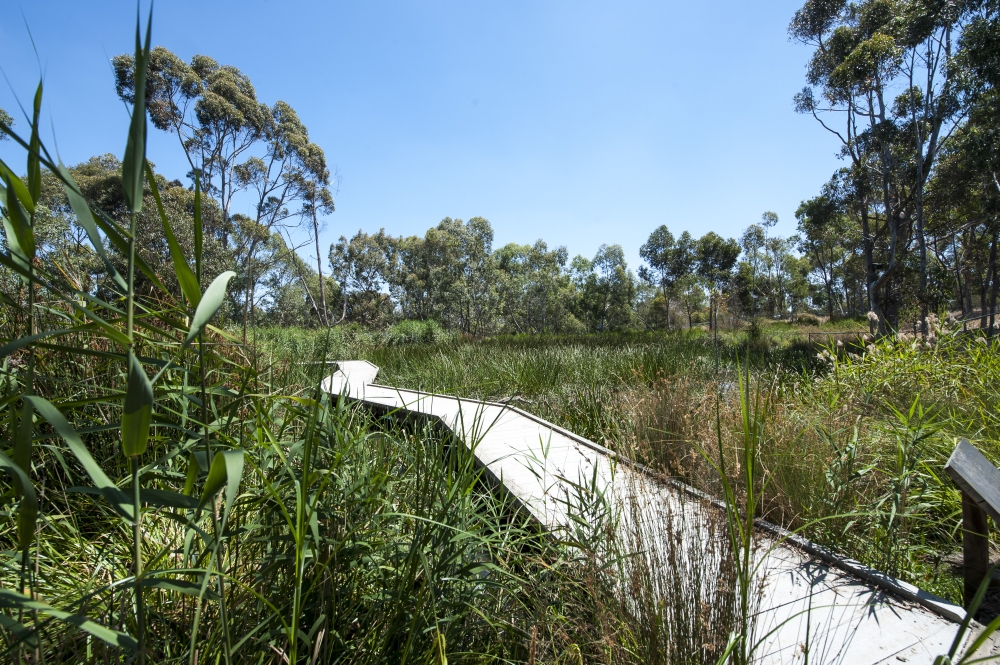The United Nations Educational Scientific Cultural Organisation (UNESCO) has updated its state of conservation report at midnight Paris time 31/07/2023.

Photo: Bleached coral, Stanley Reef, photo by Harriet Spark
UNESCO has also updated its assessment on whether Australia (via the federal and Queensland governments) have addressed 10 priority actions before making an official recommendation on whether or not to officially list the Great Barrier Reef as being “in-danger”.
The government asserts it has sufficiently fulfilled these initial 10 priority actions (out of 22 recommendations in total); however as the government has inadequate emission reduction targets, Australia lags behind in its commitment to help limit the global average temperature increase to 1.5 degrees, which is the greatest threat to the survival of the reef.
The Great Barrier Reef has experienced six mass coral bleaching events — in 2022, 2020, 2017, 2016, 2002 and 1998.
The joint UNESCO / IUCN monitoring mission assessed the condition of the Reef in March 2022, while the sixth mass coral bleaching event was unfolding. Reef scientists are currently reporting water temps 4 degrees above average in places for this time of year.
Dr Simon Bradshaw, Climate Council Director of Research said: “There’s absolutely no question that the Great Barrier Reef – and indeed all tropical coral reefs worldwide – are in grave danger. Our focus must be on how to limit future harms as much as possible.
“We are now living with the consequences of our past inaction, of failing to move more quickly beyond coal, oil and gas, and of decades of ignoring the stark warnings about the perils of climate change to our Reef and to all ecosystems on which we depend for our livelihoods, security and wellbeing.
“Strong and determined action this decade will be the difference between giving our precious Great Barrier Reef and everything that depends on it a fighting chance and watching it disappear. Every tonne of carbon left in the ground and every fraction of a degree of avoided warming is an investment in the future of our Reef.”
Amanda Mackenzie, CEO of the Climate Council added: “Whether or not an international body officially declares our reef is in danger or not is really beside the point. We know that it is in grave danger from climate change: the science is clear on that.”
“These past few months have seen us enter uncharted waters, with ocean temperatures literally off the scale around the world.
“We know the Great Barrier Reef is in danger, because it has experienced multiple episodes of severe bleaching already in the past decade from climate change.
“I’ve seen it first hand – in 2016. On some reefs, the stark white coral went in all directions as far as I could see. The fact is, the Reef is in big trouble due to pollution from coal, oil and gas which is fuelling climate change.
“As we head into a dangerous, hot, and almost certain El Niño period for Australia, the Great Barrier Reef will once again be under threat from marine heatwaves and the mass bleaching events that follow. That would make it an unprecedented and catastrophic fifth bleaching event since 2016.
“The government can act now to stop new polluting projects going ahead by reforming our outdated environmental laws this term of Parliament. Coal and gas companies are hell bent on continuing to wreck our climate and destroy the places we love. The government has the power to put a stop to this.
“We can try to look like we’re protecting the Reef or we can actually take steps to do so: and the only way to protect our Reef is to stop burning coal, oil and gas and make the rapid shift to renewable fuel sources this decade.”


